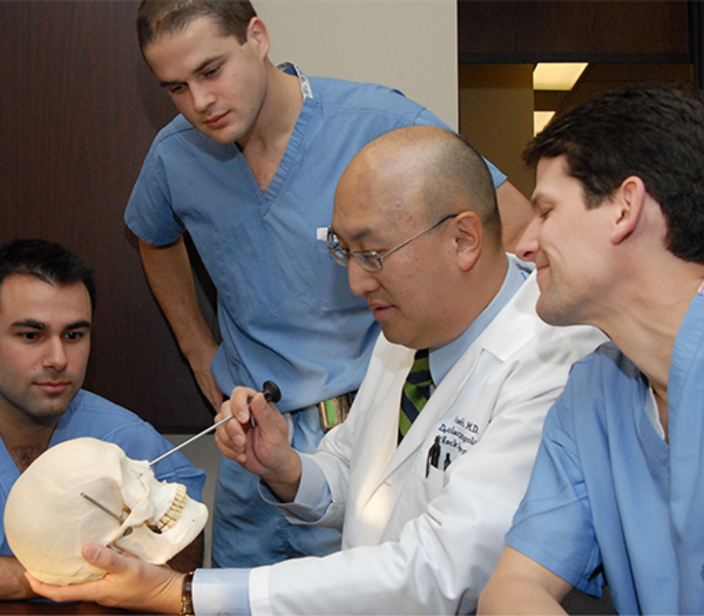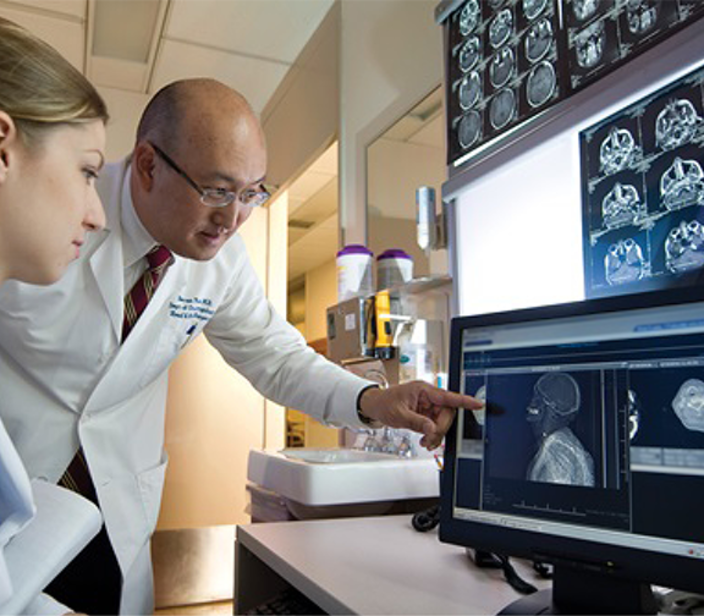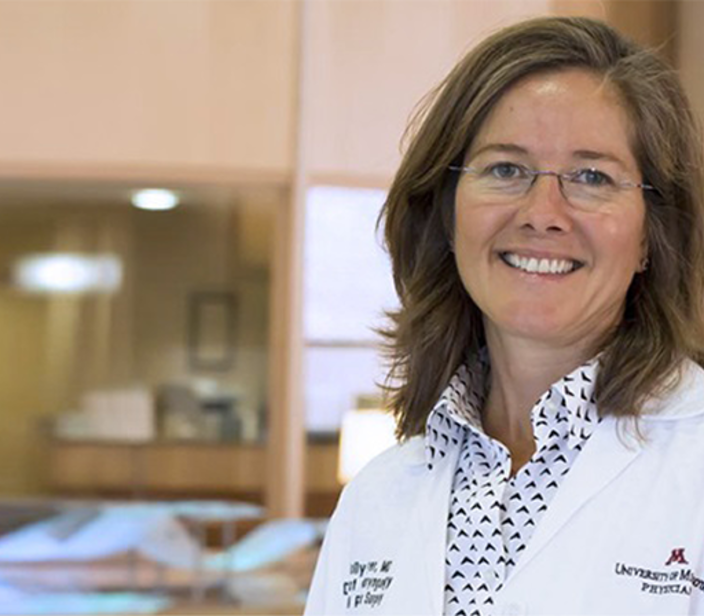About
The University of Minnesota Department of Otolaryngology has more than 100 years of history of conducting research, treating patients, and educating the next generation of otolaryngologists. Our physicians diagnose and treat a variety of ear, nose and throat problems – from the most common to the most complex.
Because we’re a part of the University of Minnesota Medical School, our physicians regularly collaborate with colleagues in other specialties, such as pediatrics and oncology to provide the most advanced diagnostic and treatment options, as well as groundbreaking research opportunities. This commitment to collaboration and innovation, coupled with the expertise of our physicians, has allowed us to create a highly sought-after residency training program, attracting young physicians from around the nation and the world.
What is Otolaryngology?
Otolaryngology—commonly referred to as Ear, Nose and Throat (ENT)—is the branch of medicine that specializes in the diagnosis and treatment of a broad range of ear, nose, throat, head and neck problems.
Some common examples are chronic ear infection, tonsillitis, sinus problems and sleep apnea. However, otolaryngology also encompasses hearing loss, various cancers of the head and neck, voice issues and reconstructive surgery to repair injury or deformities. Otolaryngologists are physicians and surgeons who specialize in diagnosing and treating these disorders.
Within otolaryngology are a number of sub-specialties, which include:
- Otology, which deals with disorders of or trauma to the ear such as hearing loss, dizziness, ear inflammation, perforated eardrum, etc.
- Rhinology, which primarily pertains to sinus disorders
- Laryngology, which focuses on issues such as hoarseness and vocal cord problems
- Head and Neck, which includes the diagnosis and treatment of thyroid cancer and cancer of the oral cavity, pharynx and larynx
- Facial plastic and reconstructive surgery


